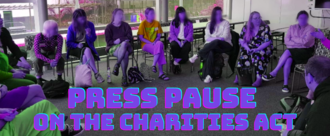-
Stop funding the genocide: change council policy to align with UN resolutionWe seek that both councils align their procurement policy with UN Resolution 2334, and the obligations placed on member states by that resolution. There is no question that Israel is currently in breach of many international laws. As a starting place, Israel is illegally occupying Palestinian territory. UN resolution 2334 refers to the territory held by Palestine in 1967 and the illegal occupation of that territory by Israel. As an occupier state, Israel has legal obligations to protect Palestinians who live in their territory. Israel in is breach of these obligations by directly targeting and knowingly harming Palestinian civilians. Israel does not have the right to attack citizens whom they have a duty to protect. International agreements are not directly enforceable on crown agencies where their provisions have not been incorporated in domestic legislation. However, international agreements are significant even when they are not incorporated into domestic legislation as there is considerable political and moral force on governments to act in accordance with their international obligations. UN Resolution 2334 In resolution 2334, Israel was requested to cease all settlement activities in the occupied territory. In support of this, Clause 5 of the resolution calls upon all states to distinguish between the territory of the state of Israel and the territories occupied since 1967 in all dealings with the region. The Resolution was supported by the New Zealand government. Subsequently, in February 2020 the United Nations published a database of over 100 companies it considered were doing business in the Israeli settlements. On 1 July 2023, the United Nations reviewed the list and removed 15 companies from the list due to them having halted activity in the Israeli settlements. United Nations Resolution 2334 declared that all member states should not deal with organisations doing business in the illegally occupied Palestinian Territories, this includes Aotearoa/New Zealand. We call on our local government to align its procurement policy with UN resolution 2334.96 of 100 SignaturesCreated by Ruby Haazen
-
Protect Te Aka Whai OraOur health system has failed Māori for far too long. Report after report has demonstrated institutional racism and exclusion of Māori leadership that has led to devastating outcomes and inequity. For all those years, hapū, iwi, health workers, lawyers, health researchers, and many more have fought for better, and called for practical solutions they knew would work. Te Aka Whai Ora (the Māori Health Authority) is the result of their vision for a health system that better honours Te Tiriti o Waitangi, and better cares for whānau. A truly Māori-led agency that has the power to resource and lift up kaupapa Māori, and iwi and hapū health services, can improve health for Māori, and all communities in Aotearoa. Without a clear plan to improve hauora Māori, the National, ACT, and NZ First parties have vowed to disestablish Te Aka Whai Ora. The coalition Government plan to introduce the disestablishment legislation just days before the hearing of the Urgent Waitangi Tribunal claim is set to begin. This bad-faith move restricts the jurisdiction of the Tribunal to fully consider this breach of Te Tiriti, and the impact on Māori. It is unacceptable for the Crown to unilaterally move ahead and block tangata whenua from being heard. We demand a health system that treats everyone fairly, in ways that uplift them and their whānau, and honours Te Tiriti o Waitangi. We stand with people on the frontline of the health system: allied, public, and mental health practitioners, nurses, doctors, and many more health professionals, who know Te Aka Whai Ora is important and necessary to deliver healthcare well. Disestablishment is a major threat to Māori health. That’s why we’re calling for the Government to change course now and protect Te Aka Whai Ora. https://www.youtube.com/watch?v=ZUTDpxDh90E19,576 of 20,000 SignaturesCreated by Stop Institutional Racism NZ

-
Open letter: Fund pay equity for care and support workers nowWhen care is in the community, whānau stay connected to the people and places we love. All of us want our family members to get the support they need to live independently and well. People who deliver care and support to our older ones, disabled whānau, and folk recovering from illness or injury are key to the infrastructure of care communities need to look after everyone. For far too long, their work has been undervalued because funding agencies and governments of all stripes have underpaid for work that has traditionally been done by women. We urge you to fund the pay equity settlement for all care and support workers as soon as possible. For over a year we have undergone a rigorous pay equity process. We have systematically proven and measured the undervaluation of care and support workers based on their gender. Thousands of hours and many resources have been devoted to analysis that was signed off at each milestone. Unions and employers are ready to make this happen. But your agencies that fund care and support work continue to lag behind on providing sufficient funding to deliver pay equity and have interfered in an evidence-based and prescribed process adhered to by employers and unions. As a result, too many workers are struggling to make rent payments and put food on the table while they’re made to wait. The need for care and support grows as our population ages while services lose staff to better paying professions and strain to recruit new people. We are calling on you to stop the delays and interference now so the claim can progress. The situation is now urgent and overdue. You have a huge opportunity to strengthen this cornerstone of our community health system, nourish services that care for families, and transform the lives of 65,000 workers. Aotearoa celebrated proudly in 2017 when unions won an historic pay increase for care and support workers following landmark legal wins championed by aged care worker Kristine Bartlett. We knew it wasn’t right that care and support workers were struggling to make ends meet while doing some of the most important work there is. Since then, their wages have regressed back to minimum wage while the cost of living has skyrocketed. Care and support workers change catheters and stoma bags, and make sure medicine is taken. They support families through the difficult changes that come with health problems. They assist disabled people to live independently at home. They show up for folk who don’t have friends or whānau to come to visit. They help people shower, turn over in bed to avoid pressure areas, and to live well. They support people through mental ill-health or addiction to keep going. They’re with loved ones at the end of their lives. Once again, it’s time to make sure care and support workers are paid what they’re worth. This time for good. Please fund the pay equity claim for all care and support workers urgently so we can reach a settlement. From, Public Service Association Te Pūkenga Here Tikanga Mahi, E tū, and New Zealand Nurses Organisation Tōpūtanga Tapuhi Kaitiaki o Aotearoa With the support of: Carers New Zealand Alzheimer’s New Zealand New Zealand Society of Diversional and Recreational Therapists Grey Power National Council of Women New Zealand Auckland Women’s Centre YWCA Kristine Bartlett Saunoamaali'i Dr. Karanina Sumeo, Equal Employment Opportunities Commissioner / Kaihautū Ōritenga Mahi Professor Katherine Ravenswood (AUT) Migrant Action Trust Gabriela Aotearoa New Zealand Migrante Aotearoa New Zealand New Zealand Council of Trade Unions Unite Union NZEI Te Riu Roa New Zealand Professional Firefighters Union MERAS Midwifery Employee Representation & Advisory Service Tertiary Education Union Te Hautū Kahurangi Tertiary Institutes Allied Staff Association National Union of Public Employees9,562 of 10,000 SignaturesCreated by PSA & NZNO & E tū
-
Adopt the Zero Carbon Plan 2030Our city needs a plan to protect our people, our places, and the things we love from climate change. Dunedin City Councillors have the opportunity to do this by adopting the Zero Carbon Plan and working to achieve zero carbon by 2030. ➡️ Climate change threatens our very future. The Intergovernmental Panel on Climate Change (IPCC) warns of a “rapidly closing window of opportunity to secure a liveable and sustainable future for all” (1). To avoid the worst impacts of climate change, global warming must be limited to 1.5 degrees above pre-industrial levels. This means reducing our carbon emissions as soon as possible. ➡️ Mitigating the impacts of climate change demands urgent action. We must act now to reduce greenhouse gas emissions across all sectors. Although this may seem costly, the IPCC warns delaying action will create a false economy. Our savings now will mean future climate mitigation options become more costly and less effective. ➡️ There is a consequence to delay. If inaction causes us to overshoot the Paris Agreement target of net zero by 2050, the IPCC predicts that we risk triggering feedback loops that will be difficult - or impossible - to reign in. For Ōtepoti Dunedin, this means more extreme weather events, rising sea-levels, and more pressure on our native wildlife and ecosystems. Urgently reducing our carbon emissions is the right thing to do — for our community now and in the future. If Dunedin City Councillors choose to delay our zero carbon targets, we all pay the price. It will threaten our homes, livelihoods and even our lives. Dunedin’s Zero Carbon by 2030 goal means that we are working towards a livable and sustainable future and saving money in the long run. Kicking the can down the road puts that at risk. We simply can’t afford to wait. (1) AR6 Synthesis Report Summary for Policymakers: Climate Change 2023 (ipcc.ch/report/sixth-assessment-report-cycle).617 of 800 SignaturesCreated by Forest & Bird Dunedin

-
Wayne Brown: Don't Cut Community Services!NO CUTS Wayne Brown’s Budget 2023/24 is proposing to cut funding to crucial community support services during a cost of living and climate crisis. The people of Auckland are deeply concerned about the proposed budget. We understand that the Council is facing financial challenges, but we urge Auckland Council to reconsider these cuts as they will have a severe impact on the community. “Cutting regional community focused initiatives … of all groups working with Māori, Pasifika, youth, refugee, new migrant and rainbow communities.” - Page 30, Te Wāhanga Tuatoru: Te Pūtea e Marohitia Ana, Annual Budget Proposal 2022/23. We can see the budget has targeted marginalized communities, yet does not suggest cuts to industry and business whatsoever. The proposed budget cuts will have far-reaching consequences for all Aucklanders, but especially our most vulnerable residents, including children, the elderly, the working poor, and those with disabilities. Cuts to climate change, social services, community venues, public transport, arts,and education will have a devastating impact on these communities, and protesters are determined to make their voices heard. The proposed cuts to community services, including libraries, community venues and centers, youth and homelessness, early childhood education, Arts and culture, water quality and public transport, will have a negative impact on the quality of life for many Auckland residents. These services are essential for the well-being of our community and provide opportunities for social interaction, education, and access to essential resources. Furthermore, the proposed cuts to environmental initiatives, including park maintenance and waste management, will have a detrimental effect on our environment. These initiatives are critical to the sustainability of our city and the protection of our natural environment and resources. We understand that difficult decisions must be made regarding the budget, but we urge the Council to prioritize the needs of the most vulnerable. We believe that alternative solutions and a better budget is possible. The Auckland council’s feedback report suggested that the majority of Aucklanders reject this proposed budget, and it is not suited to serve Auckland residents. The sale of the airport shares is not necessary or helpful and will take Auckland backwards. The airport shares are an important revenue stream, the airport is increasing in value, and it is an asset that the Council can borrow against. The 18% shareholding is also an opportunity for public voice on the future of the airport, a strategic asset - and it is important that the Council holds onto public control in the face of climate and health emergencies. The Community Coalition against the Cuts demands that Auckland Council, Mayor and Councilors listen to Aucklanders. Consider and implement the voices of Aucklanders who took their time to give their feedback. We fully reject this proposed budget, and we demand the following: 1- NO CUTS TO REGIONAL & COMMUNITY SERVICES 2- INCREASE RATES & DEBT 3- NO SALE OF AIRPORT SHARES The super-rich must pay for this budget deficit, not the most vulnerable. We demand that any shortfall in the Council's books should be filled through increased rates on big business, and charges on luxury items such as private helicopters and super-yachts, not cuts which hit the poorest hardest. We need to be expanding services, not cutting them. We demand that the Council expands public transport, making buses and trains free and frequent, and takes more action on climate change amidst a climate crisis. We demand more funding to tackle poverty and homelessness. Therefore, we call on Auckland Council to reconsider the proposed budget cuts and to find alternative solutions that do not compromise the well-being of our community and our environment. We fully reject this budget we will not sit by quietly. We say, NO CUTS! Community Coalition Against Cuts252 of 300 SignaturesCreated by Community Coalition Against Cuts

-
Open Letter: Ban Mining in Conservation Land NowThe Labour Government has a long held policy of extending Schedule 4 over the Southern Hauraki and has had a policy of no new mines on conservation land since 2014. Since taking office in 2017, the Party has failed to make either policy law. We are writing to you now as Conservation Minister to challenge you to step up and prevent mining companies from undermining Hauraki / Coromandel and all conservation land nationwide. We believe that in order to retain any credibility around conservation, your Government must fulfill the commitment made upon first taking office by passing a law that will fully protect all conservation land from mining. We understand that negotiating with tangata whenua takes time, but that specific Te Tiriti obligation can be written in to the law. We are in a biodiversity crisis, we are in a climate crisis. Why would we compromise even part of one of our biggest assets, our biggest carbon sinks, our last bastion of the unique and special ecology of Aotearoa New Zealand, conservation land, by allowing and enabling mining activity in these places. You as Minister have the power, and the responsibility, to ensure that our children and grandchildren can have a relationship with the natural world that sustains us in the years to come; the responsibility to ensure that all the unique flora and fauna reliant on these spaces can survive and flourish into the future, the responsibility to provide for future generations.1,256 of 2,000 SignaturesCreated by Coromandel Watchdog
-
Introduce a Basic Income in Aotearoa New ZealandWe believe recent disasters have heaped misery on people, many of whom live in permanent crisis. In our view, previous actions have been unsuccessful in preventing persistent poverty; poverty has been exacerbated by recent disasters; and the current system is not fit for purpose. A Basic Income can be a foundation upon which an equitable system can be built. We feel we urgently need a system that is both unbureaucratic and reliable, to lift people out of poverty and provide help when needed. Click down below to read our Open Letter https://www.scoop.co.nz/stories/PO2304/S00166/an-open-letter-to-parliament-from-basic-income-new-zealand.htm996 of 1,000 SignaturesCreated by Te Utu Tika Hei Oranga i Aotearoa - Basic Income New Zealand
-
Fix the CodeEveryone deserves to be kept safe online. But NZTech’s Code of Practice for Online Safety and Harms does not go far enough to protect New Zealanders from the very real dangers of online harm. The Code aims to bring together social media platforms like Meta (which includes Facebook and Instagram), Google (including YouTube), TikTok, Amazon (including Twitch) and Twitter to set an industry standard for online safety in Aotearoa. The Signatories to the Code committed to provide annual reports on their efforts toward reducing risks and harms across a number of measures - a worthy goal, in theory. However there are very real problems with the Code as it currently exists. Our main concerns are: • The Code’s self-regulation is not credible. The Code fails to ensure independent oversight of the Signatories. While an ‘Oversight Board’ is being created, membership on that board is at the sole discretion of the social media companies and there are no credible safeguards to maintain or scrutinise the Board’s independence. Those impacted by these companies are not promised a voice nor the means to use it. • The Code isn’t focused on Aotearoa. We believe that the Code’s Signatories are seeking to benefit from our international reputation to influence global regulation. The Code invokes Te Ao Māori, but the content is generic, as are the proposed governance arrangements and the consultation process. There’s no mention of the specific challenges our communities face online nor how the Signatories are working to address those challenges. The initial global reports from the Signatories were very general statements of their global policies and many of the Signatories did not even provide minimal Aotearoa-specific data. • The Signatories’ community engagement has not been effective nor credible. This is particularly embodied by the inauthentic community engagement that has been performed. While many of the people at organisations like Netsafe and NZTech have done genuine and authentic work to try to engage with civil society to make the Code effective, and we do appreciate the mahi they have performed, they have been hamstrung by the Signatories’ decisions and objectives. This means while concerns and feedback have been carried back to the Signatories, they have not been taken on board nor implemented. That’s why New Zealanders need to come together to call for better protection. And that’s why the Coalition for Better Digital Policy, led by Inclusive Aotearoa Collective Tāhono, Amnesty International Aotearoa New Zealand and Tohatoha has been formed. Many of us have been constructively critiquing the Code since it was publicly released in 2022. As a group, we aim to enable robust, inclusive, and effective regulation of technology in Aotearoa, with a focus on upholding human rights and preserving the benefits technology can provide us. Our shared experiences have convinced us that the current processes being used will not make the Code truly effective. We are calling on NZTech and the Signatories to work with us to develop a process that meets the needs of everyone at risk of harm from these companies. Add your voice by signing the petition to call on NZTech to #FixTheCode.42 of 100 SignaturesCreated by Coalition for Better Digital Policy
-
Amnesty for OverstayersEstimates are that Aotearoa has approximately 14,000 people without any visas or legal status. These are migrants, their whānau and tamariki who have been living in fear during some of the worst challenges we have faced as a country. They are victims of our regressive immigration policies, not criminals. Overstayers deserve to lead a life with dignity and respect. They deserve to be safe and deserve to be helped, especially during hard times like the Northland floods and Cyclone Gabrielle. With the current system, overstayers have hesitated to seek medical help such as covid tests and covid vaccination, for the fear of being reported to authorities and subsequently being deported. And now many of them are flood victims afraid of seeking assistance provided by the government. This is potentially a dangerous and unsafe health situation, not just for the victims but for the entire communities surrounding them. Many of our overstayers are children of parents who do not have lawful status. It is harsh and unfair to punish the children by depriving them of access to needed services such as health care providers, education and safety services. Researchers at UNITEC published an excellent report highlighting the plight of overstayers and their families – the stresses are multi-fold and affect their mental well-being. The solution proposed by researchers is also policy change and legal status for the overstayers. Link to the full report: https://www.unitec.ac.nz/sites/default/files/public/documents/Tuvalu%20project%20report%20-FINAL-13.12.2021.pdf An amnesty for all overstayers regardless of their country of origin is the need of the time.While we appreciate that the Prime Minister is going to look at the petition regarding Pacific overstayers, he needs to be inclusive and act sooner than later. We ask the Prime Minister to give overstayers work rights and their children access to public education, allowing them to lead a life of dignity.1,156 of 2,000 SignaturesCreated by Anu Kaloti
-
Save Auckland CABs!The service provided by Auckland CABs is absolutely essential – something that is even more apparent in times of crisis. With the recent floods and the ongoing challenges of daily life, Auckland CABs are helping people with information and advice and connecting them with the support they need. Last year our dedicated volunteers in Auckland CABs helped more than 160,000 people. Auckland Council is proposing to significantly cut or even remove all funding from CABs in Auckland in its budget for 2023/24. This could result in the complete closure of the CAB service, which has been serving Tāmaki Makaurau for over 50 years. Let Auckland Council know that they should not cut funding to Auckland CABs.22,592 of 25,000 SignaturesCreated by Sacha Green
-
Let Coast Road people have their say! Publicly notify any consent to mine in Barrytown.A proposed venture to start mining the Barrytown flats could lead to a decades-long industrial operation in this beautiful area of the West Coast. Despite the company and council's claims to the contrary, a venture of this size and scale could have many more than minor adverse effects on the community and environment including: * All of us who live and have businesses along the scenic Coast Road. * The environment: particularly birds, wetlands and the vulnerable coastal zone with a high-water table. * Highway safety for all, residents and visitors; along the narrow Coast Road. * The reputation and enjoyment of the Coast as a tourist destination. Therefore, the GDC and WCRC should adhere to democratic process and allow the affected parties to at least be heard. PUBLICLY NOTIFY any consent to mine here!281 of 300 SignaturesCreated by Coast Road Residents
-
Press Pause on the Charities Act changesThe charities sector, accountable first to the communities of Aotearoa, plays an important independent role in our democracy. With over 28,000 registered charities in New Zealand, the Charities Amendment Bill will have a far reaching impact in the for-purpose (aka the ‘not-for-profit’) sector. It has been asked whether the Charities Amendment Bill is a ‘wolf in sheep’s clothing’. While some elements of the Bill are helpful and look good, the devil is in the detail. Government says the Bill will ‘modernise’ the Charities Act 2005. In fact, much of the Bill ensures greater Government control of the charities sector, reduced sectoral independence, and a reduction thereby of the sector’s essential contribution to democracy. It was Labour Party policy for the 2017 election to “prioritise the long-promised first principles review of the Charities Act”. This would include ensuring that charities can engage in advocacy without fear of losing their charitable status. The Minister now says this review is not needed. Any legislation impacting on this sector needs to provide an enabling framework rather than one that restricts the sector from being a voice for its communities. This will be the last chance for the Act to be independently reviewed for many years to come. The petition can be signed by an individual or an organisation, or by both, separately. Please complete this signing by midday on 8th December, so it can be submitted to the Select Committee in time. We encourage you to make your own submission by emailing the Select Committee directly at [email protected] or using this online form on the Parliament website: https://www.parliament.nz/en/pb/sc/make-a-submission/document/53SCSS_SCF_BILL_127163/charities-amendment-bill260 of 300 SignaturesCreated by Tim Howard

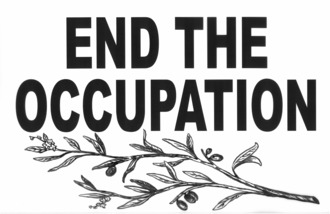

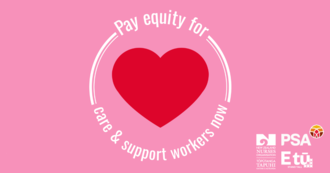.png)
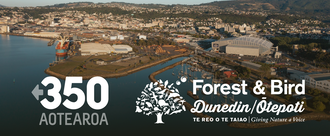
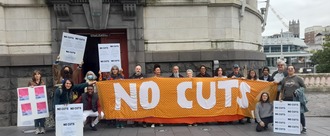
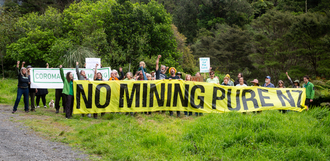

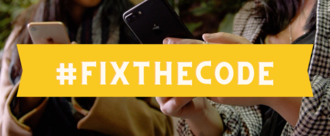
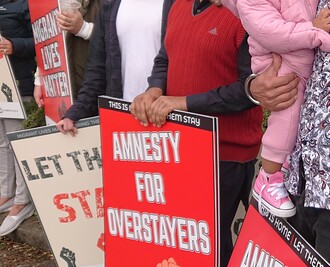
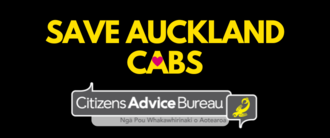.png)

